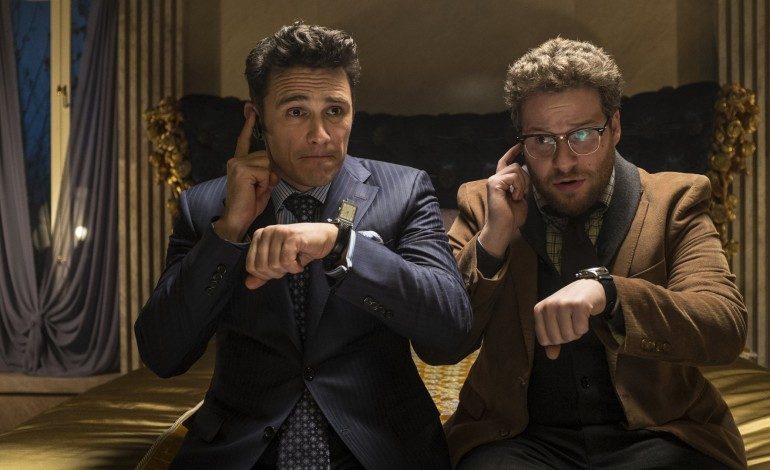

In December of 2014, Sony Pictures released a presumably harmless comedy called The Interview. It followed two celebrity journalists — Aaron Rapaport (Seth Rogen) and Dave Skylark (James Franco) — who are able to get an interview with the leader of North Korea, Kim Jong-un, who apparently is a fan of their popular show. But soon after the news hits, the CIA contracts the two journalists to assassinate the notorious leader. It seemed like a sensitive plot like this one could turn some heads, but no one realized the massive outburst the comedy would cause around the world.
The film is actually more well-known for the events leading up to its release, not the mild reception it had once it hit theaters. Before its release, there were many terrifying terrorist threats that were made at the United States, specifically for the theaters that were planning on showing the film. There was no telling what would North Korea would do in the end, which made it that much more frightening. It was a bad time for everyone involved, especially Rogen. He was the both film’s co-director and had a major part in creating the story. Although he made very few statements to the press around the time of The Interview‘s release, he recently discussed the dreadful experience of it on The Graham Norton Show.
It was a horrible experience, yes. It’s bad to be blamed for almost starting a war. It’s not fun; it’s super weird… I had personal security, and then one day they just went away. I was like, ‘I guess I’m safe now.’ The studio provided the filmmakers with security in case someone from North Korea was gonna kill us, I guess. And then literally, one day, they were just gone… the studio just didn’t want to pay for security any more.
It’s still a hard thing to believe that a comedy like this had the huge response that it did, and there hasn’t been a film in recent memory that has required its filmmakers to need personal security. It was meant to simply be a goofy, fun experience for Rogen and Franco. Instead it became a very regretful time, including Sony who lost millions on the film.
It’s probably fair to say that Rogen won’t be going back to a film like this anytime soon, which is definitely a good thing, no matter the quality that it may be. Although in hindsight, Rogen and co-director Evan Goldberg made the movie they wanted, for better or for worse. And, now, two years after the situation occurred, maybe it is better to look upon it with forgiving eyes.
